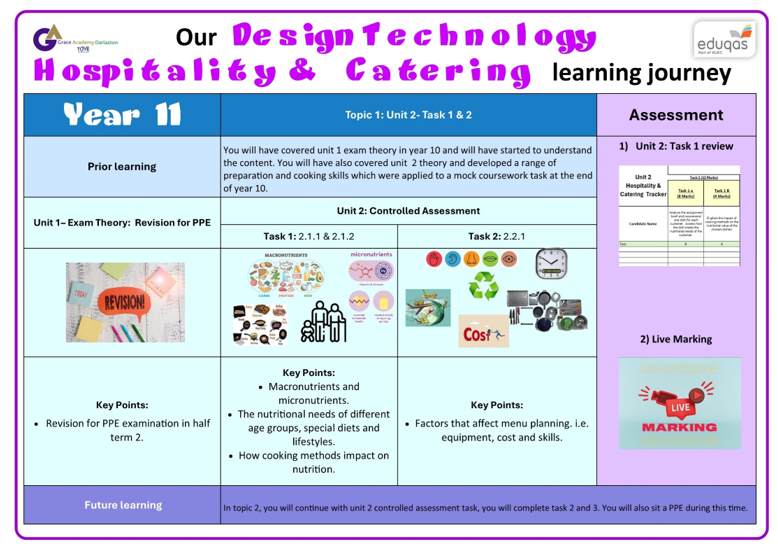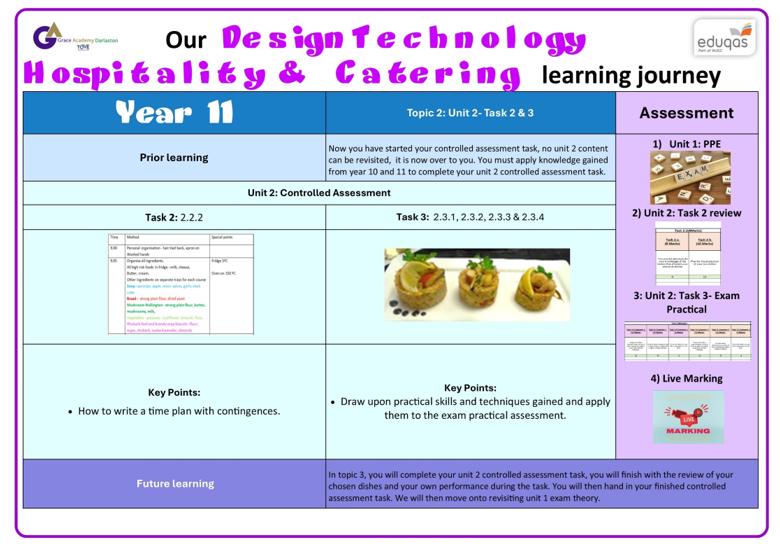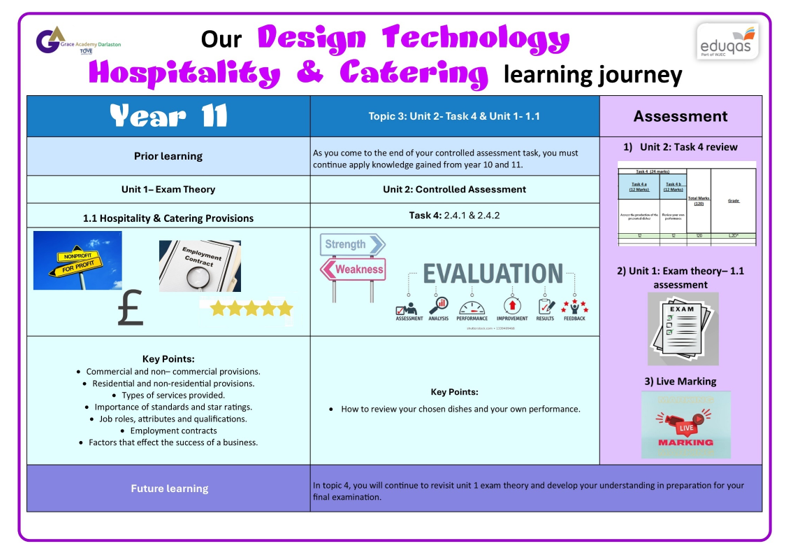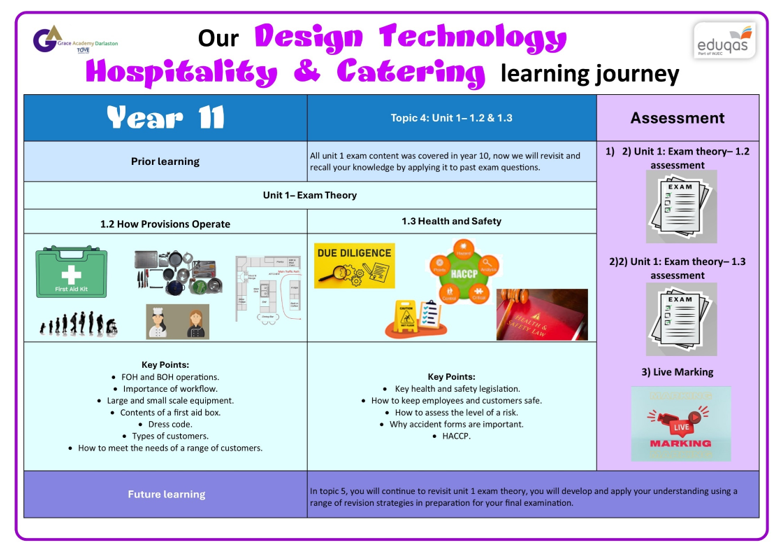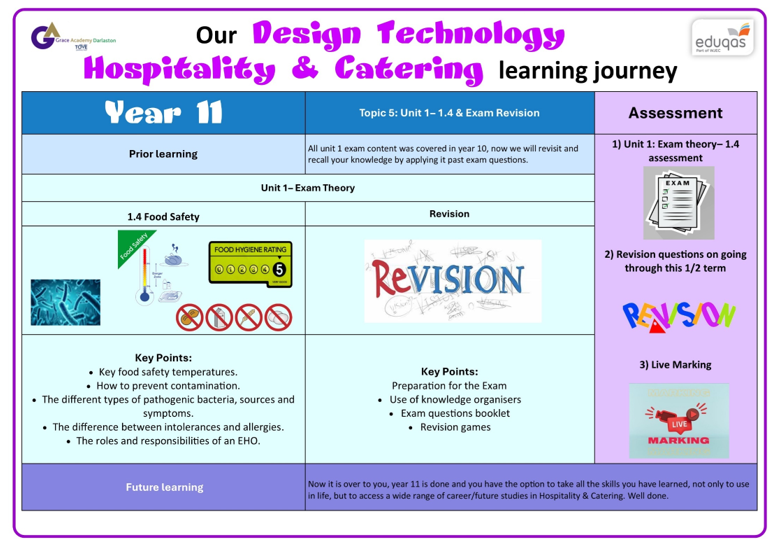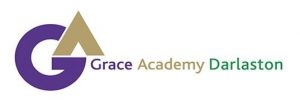Design and Technology Curriculum Intent
The core principle in Design and Technology is to deliver a curriculum that equips learners to deal with tomorrow’s rapidly changing world, introducing them to a broad range of skills and knowledge, throughout their RM and Food rotations, that helps them in their studies and used for the rest of their lives. Through successfully threading a range of materials and processes, Health and Safety and hygiene it allows pupils to explore the sustainability and developments within the subject in a range of practical solutions. These skills can be enhanced and depend further when selecting options at KS4 and focusing on either Engineering or Hospitality and Catering.
Pupils’ version (KS3 DT)
Learning DT at GAD I will develop a range of skills and knowledge that will help me make sustainable decisions in life.
Year 7
In year 7, pupils aim to broaden and develop their KS2 knowledge through an introduction to the principle KS3 Design technology curriculum which continues to build the foundations for the future. This will be achieved by chronologically threading theory and practical understanding. Pupils plan to cover two main subject areas allowing repetition of skills to enhance their recall of the key principles which underpin the learning in subsequent years. Year 7 Food sets a focus for pupils to be introduced to the main topics of nutrition, health and safety and preparation skills, these are then embedded through appropriate practical activities which allow the skills to be refined. Year 7 RM plans for pupils to be introduced to the main topics of product analysis, new developments and drawing skills connected with a range of practical skills which is underpinned through theory teaching.
Year 7 –Design Technology curriculum is split into two different rotations; pupils will be partaking in RM and Catering. These rotations last for ½ a year and then the pupils will swap to the other option. Pupils may start in either RM or Food but will then rotations below.




Useful websites for revision and additional support:
https://www.technologystudent.com/
https://www.bbc.co.uk/bitesize
http://www.design-technology.info/home.htm
Year 8
In year 8, pupils aim to recall the key theories taught in year 7 and experience a curriculum that aims to broaden their learning through continuously building on their understanding. Similarly, to Year 7 pupils experience a range of theory knowledge threaded with practical skills that refines their previous knowledge. Year 8 Food, focuses on pupils having a deeper understanding of nutritional knowledge and applying this learning to external factors that can affect outcomes (e.g. seasonality), practical recipes are connected to the theory understanding. Year 8 RM intends to introduce new areas of understanding in electronics and CAD/CAM designs whilst still deepening understanding of the key practical and theory knowledge gained in year 7.
Year 8 – Design Technology curriculum is split into two different rotations; pupils will be partaking in RM and Catering. These rotations last for ½ a year and then the pupils will swap to the other option. Pupils may start in either RM or Food but will then rotations below.



Useful websites for revision and additional support:
https://www.technologystudent.com/
https://www.bbc.co.uk/bitesize
http://www.design-technology.info/home.htm
Year 9
In year 9, the curriculum aim is to deepen the understanding of design technology and extend on practical skills. This is planned through a range of enhanced practical projects that use skills that have been taught in year 7 and 8 with increasing levels of difficulty, and independence to achieve a final outcome. Year 9 Food, focuses on giving pupils the chance to experience special diets, industry links and developing practical skills. Year 9 RM intends to introduce new media to challenge pupils, whilst drawing on pupils taught knowledge from other years. This is threaded with knowledge on material properties, and mechanical systems to drive a higher understanding.
Year 9 Design Technology curriculum is split into two different rotations; pupils will be partaking in RM and Catering. These rotations last for ½ a year and then the pupils will swap to the other option. Pupils may start in either RM or Food but will then rotations below.


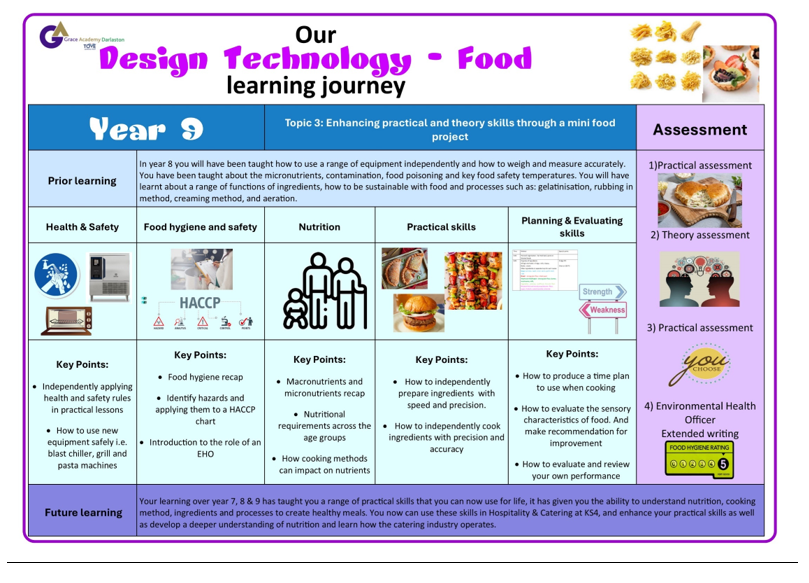
Useful websites for revision and additional support:
https://www.technologystudent.com/
https://www.bbc.co.uk/bitesize
http://www.design-technology.info/home.htm
GCSE Overview:
In their GCSE studies pupils aim to recall knowledge from the basic KS3 principles taught and develop their learning further. This will allow them to demonstrate a comprehensive understanding of knowledge and techniques, through the use of enhanced learning opportunities to achieve independent learning outcomes. GCSE pupils’ study one of two options, Engineering or Catering. Pupils will cover both theory and practical skills which continuously builds on prior learning while focusing on making connections in depth in key areas to extend their knowledge and understanding. Pupils will be required to build on their cultural capital when relating learning to the developments in the world of work and processes in industry. The curriculum intends pupils to develop their speed and precision in their practical skills independently and working as a team.
Year 10 – Engineering WJEC Level 1/2 Vocational Award in Engineering. Unit 1 – Manufacturing of engineering products, 40% of course (internally assessed, externally moderated). Unit 2 – Designing of Engineering products. 20% of course (internally assessed, externally moderated) Unit 3 Theory – solving engineering products, 40% of course, (externally assessed exam).
Pupils’ version (Engineering)
Learning Engineering at GAD I will uncover my potential in creative problem solving and understanding of the world around me including modern developments and practical skills.

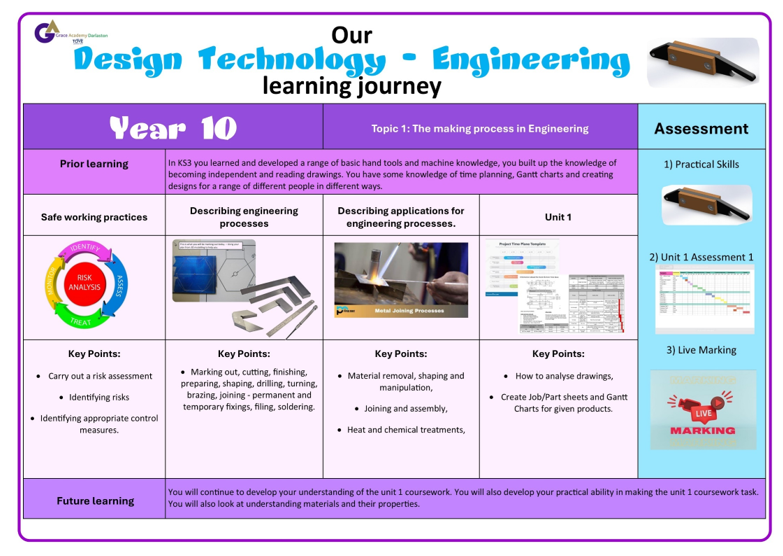
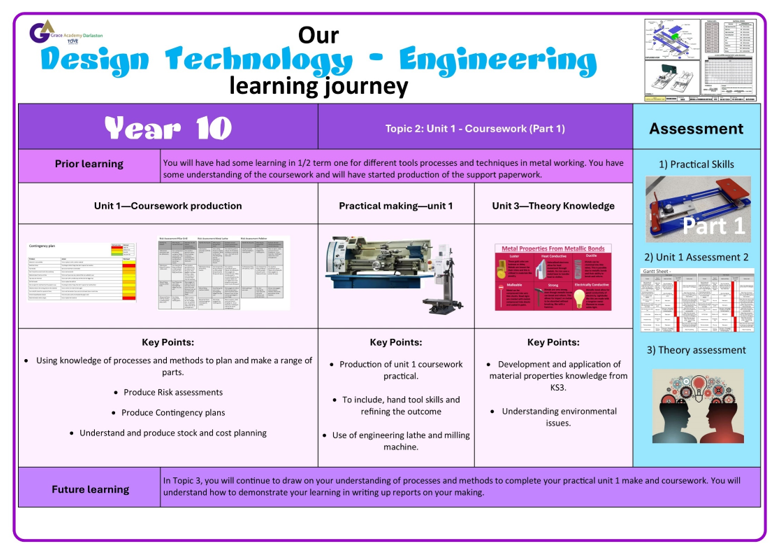
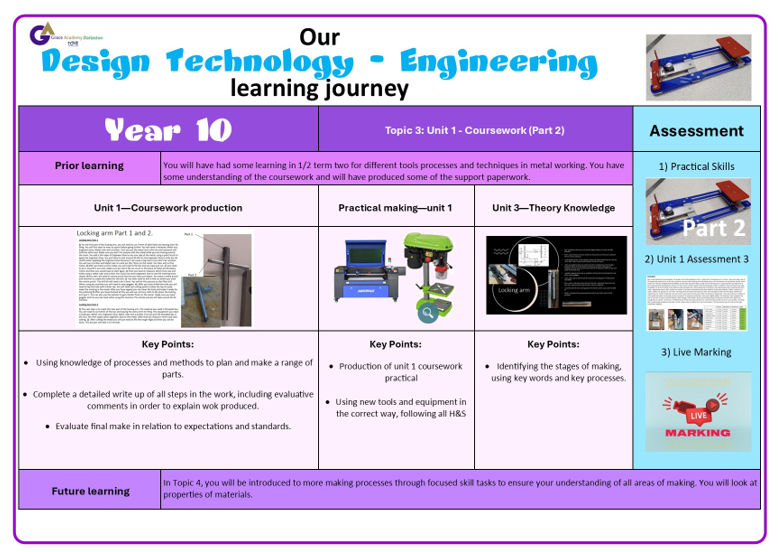
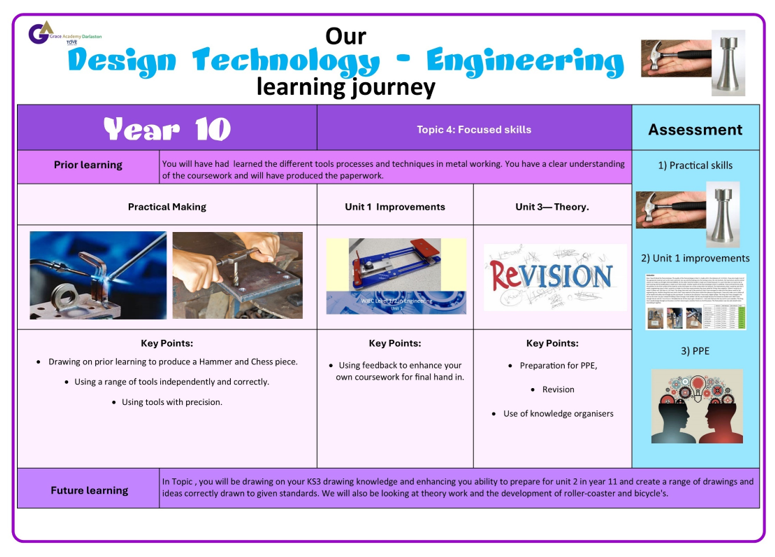
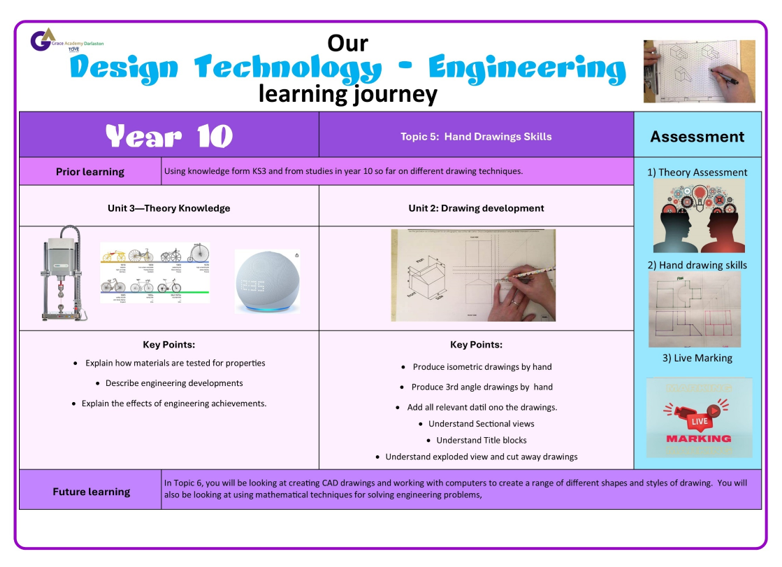
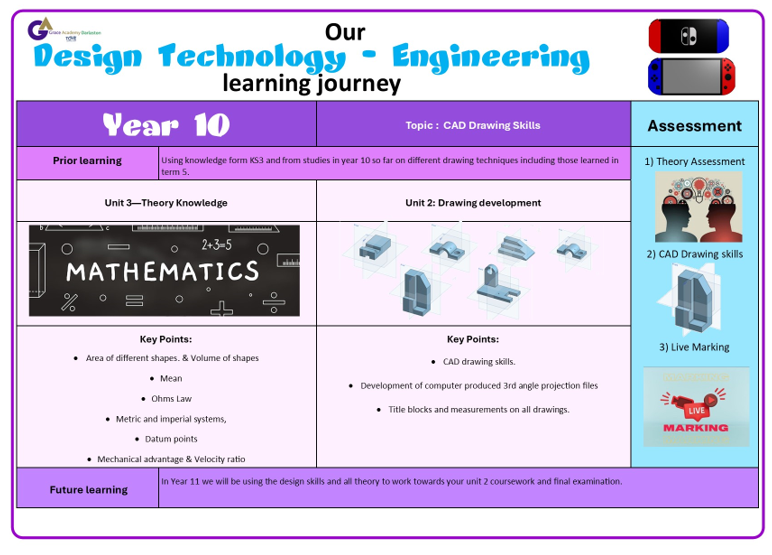
Useful websites for revision and additional support:
https://www.technologystudent.com/
https://www.bbc.co.uk/bitesize
http://www.design-technology.info/home.htm
Year 11 – Engineering WJEC Level 1/2 Vocational Award in Engineering. Unit 1 – Manufacturing of engineering products, 40% of course (internally assessed, externally moderated). Unit 2 – Designing of Engineering products. 20% of course (internally assessed, externally moderated) Unit 3 Theory – solving engineering products, 40% of course, (externally assessed exam).

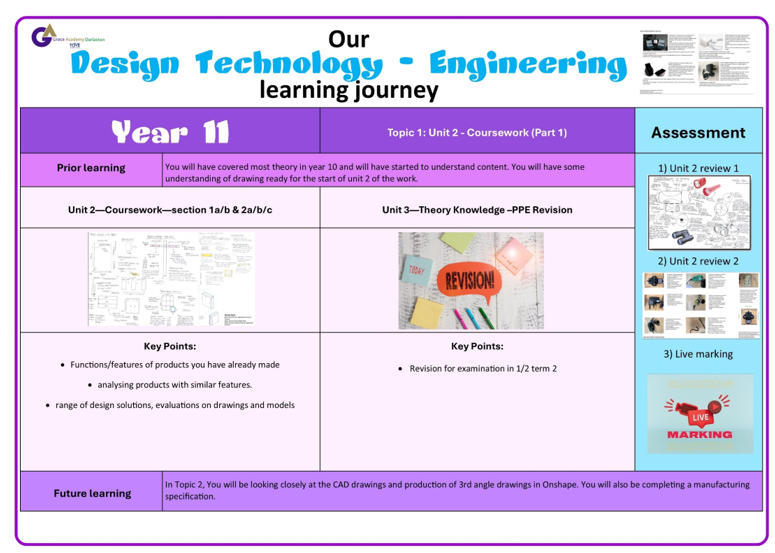
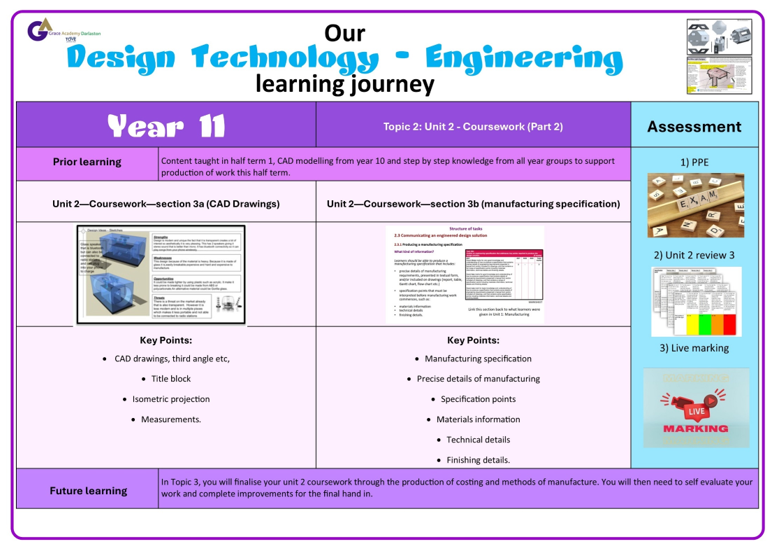
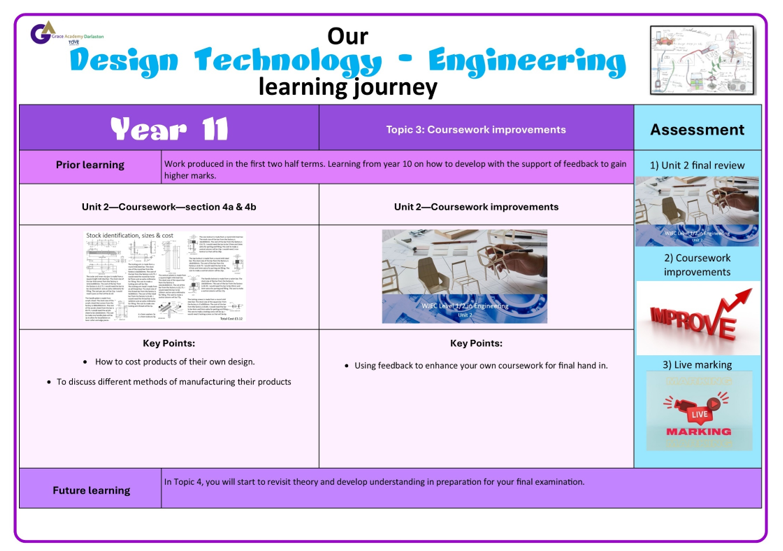
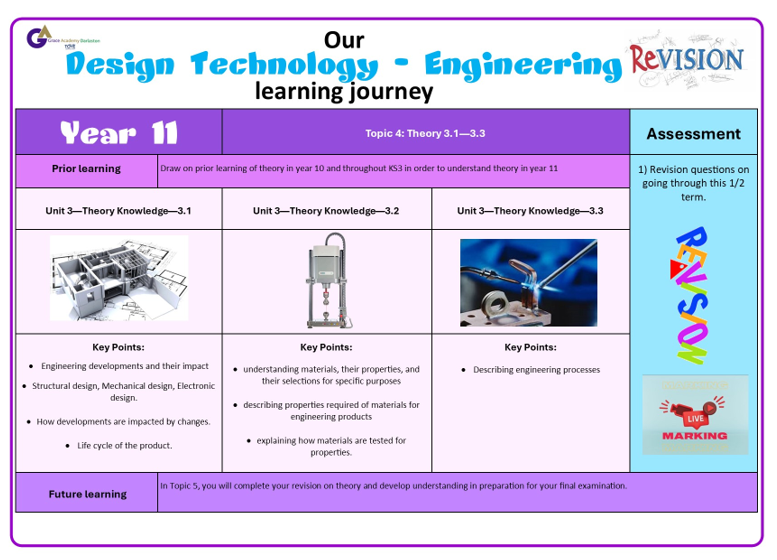

Useful websites for revision and additional support:
https://www.technologystudent.com/
https://www.bbc.co.uk/bitesize
http://www.design-technology.info/home.htm
Pupils’ version (Catering)
Learning Hospitality and Catering at GAD I will uncover my potential in applying principles of nutrition, developing practical skills and an understanding of the industry.
Year 10 – Catering WJEC Level 1/2 Vocational Award in Hospitality & Catering. Unit 1 – The hospitality and catering industry, 40% of course (externally assessed exam). Unit 2 – Hospitality and catering in action 60% of course (internally assessed, externally moderated).
Useful websites for revision and additional support:
https://www.technologystudent.com/
https://www.bbc.co.uk/bitesize
http://www.design-technology.info/home.htm


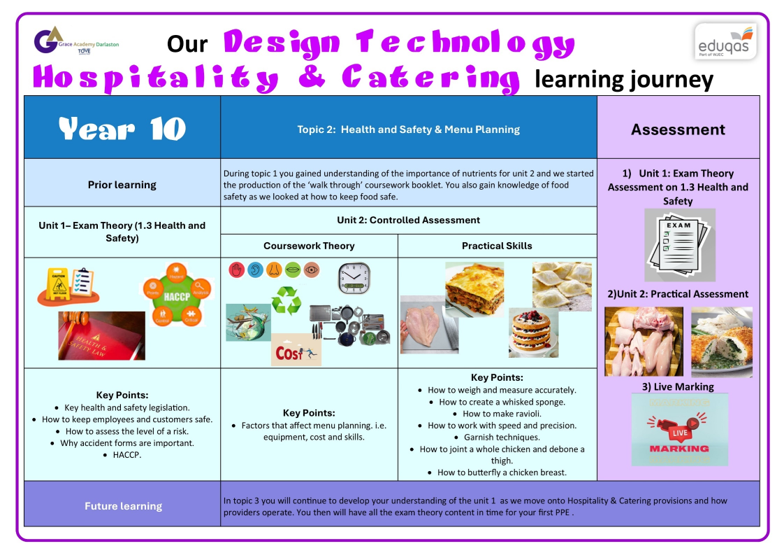

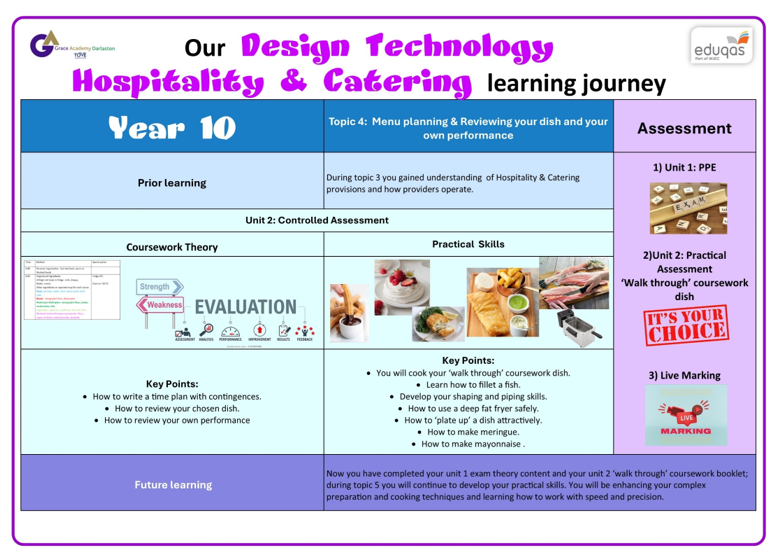
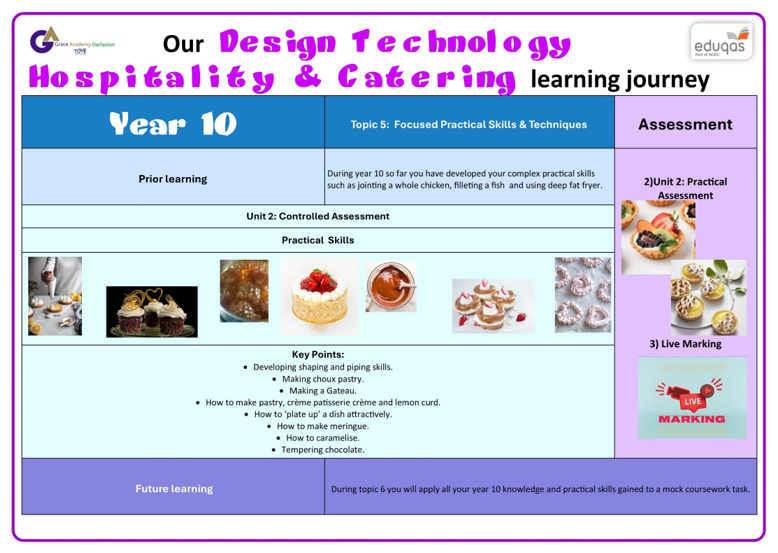
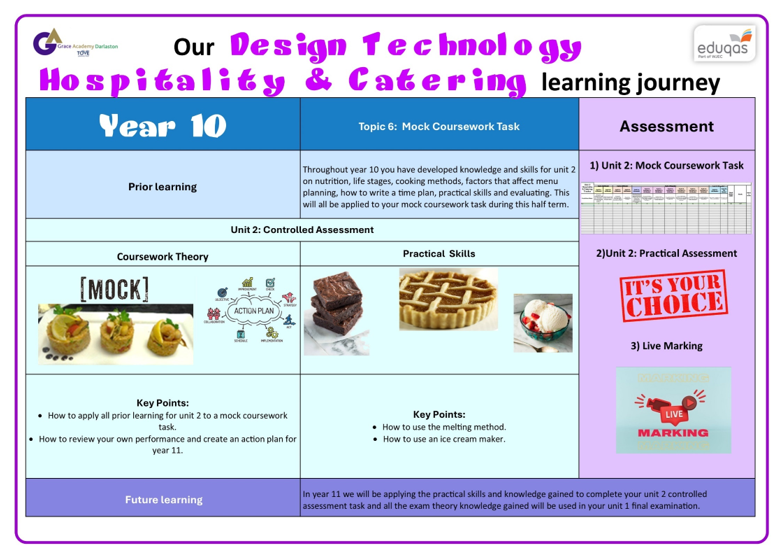
Year 11 – Catering WJEC Level 1/2 Vocational Award in Hospitality & Catering. Unit 1 – The hospitality and catering industry, 40% of course (externally assessed exam). Unit 2 – Hospitality and catering in action 60% of course (internally assessed, externally moderated).
Useful websites for revision and additional support:
https://www.technologystudent.com/
https://www.bbc.co.uk/bitesize
http://www.design-technology.info/home.htm

